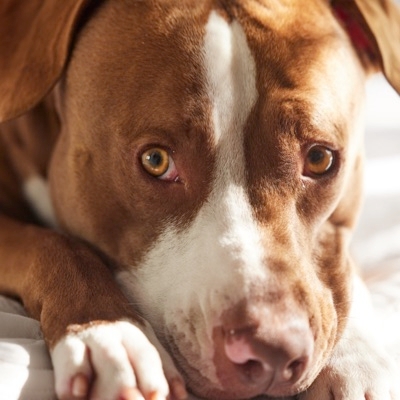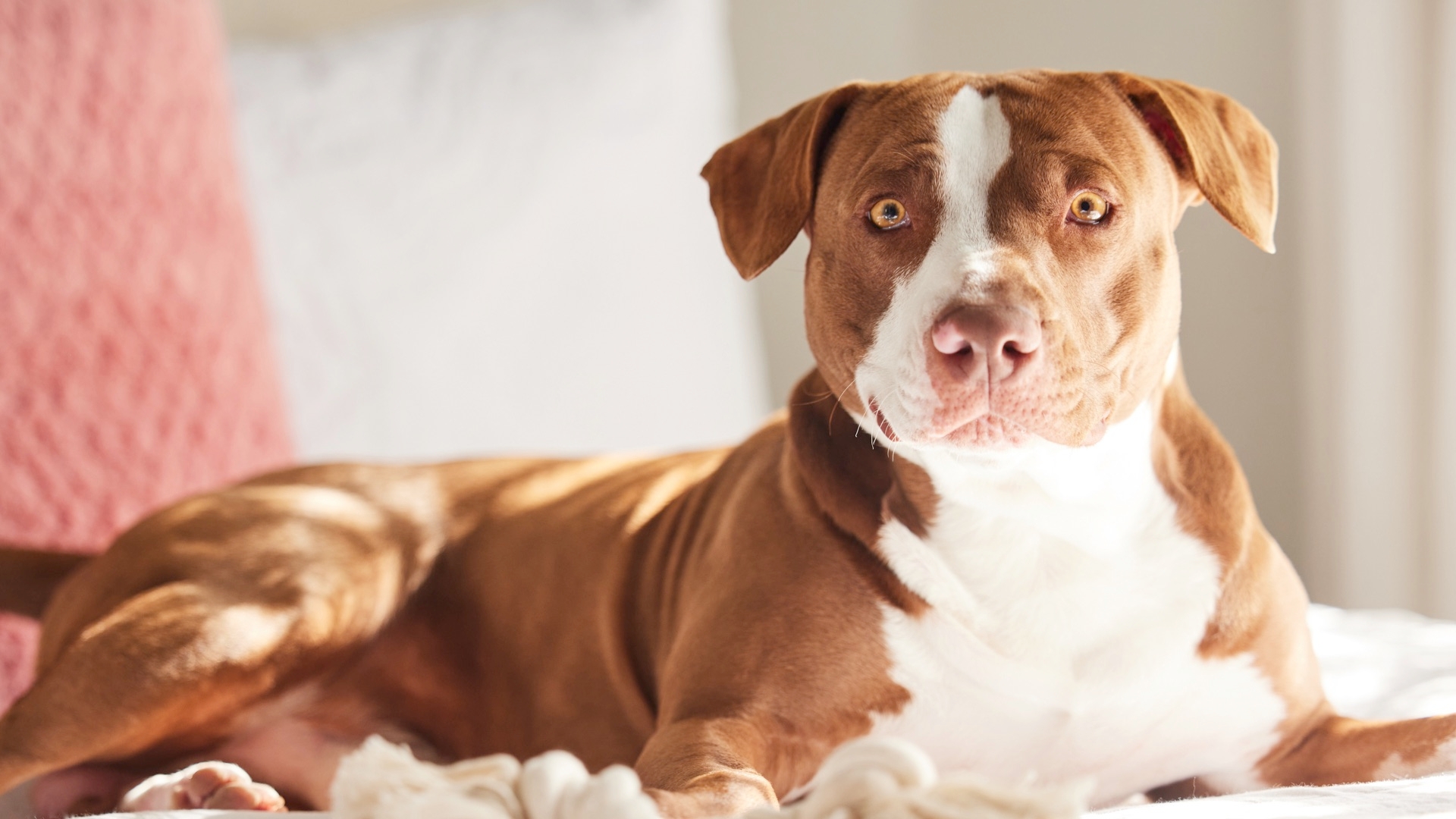House-Training Your Dog:
Summary:
When you get a new puppy or dog, you'll need to show him or her what is acceptable in your home. Different people may have different rules: Some want to train their dogs to eliminate in litter trays or on paper, while others want all 'bathroom' business to occur outdoors. For your dog to Know what you want, you have to establish a predictable routine.


By Sherry Woodard
When you get a new puppy or dog, you'll need to show him or her what is acceptable in your home. Different people may have different rules: Some want to train their dogs to eliminate in litter trays or on paper, while others want all "bathroom"business to occur outdoors. For your dog to Know what you want, you have to establish a predictable routine.
How do I house-train my dog?
For at least the first couple of weeks, a new dog of any age should be supervised when he or she has the full (or even partial) run of the house. During those times when you cannot supervise him, it is wise to restrict the movement of a new animal during the house-training phase. You can house-train your dog by using a crate. Or, for limited periods of time, you can confine the dog to a small, easy-to-clean room, like the bathroom, equipped with a child gate.
Your dog should consider this space a safe place, so add the dog's bed, water and things to chew on to create a comfortable den. The dog should be fed in this space as well. To keep this space safe, make sure that nothing that would cause her discomfort happens here and keep children out of this area.
Set up a daily schedule where you walk your dog on lead (or carry her) to the desired elimination spot after meals, after naps, and every couple of hours in between. To reinforce that the trip has a purpose, you should not play with the dog during trips to eliminate. Use a word or phrase (like "do your business") to remind the dog of her duty. As soon as she has produced, praise her lavishly and give her a treat.
What do I need to know about house-training a puppy?
Puppies cannot hold their bladders and bowels for more than a few hours. Even the most intelligent and well-intentioned puppy has to wait until his muscles develop before he can exercise appropriate bladder and bowel control, just like a human infant. If you must be away for more than two or three hours, and you are training the puppy to eliminate outdoors, you will need someone to help by walking the puppy for you.
If you are training a puppy to eliminate on paper or in a litter box, the space the puppy is contained in will need to be large enough for a sleeping area away from an elimination spot. (Dogs don't like to eliminate where they sleep.) Keep in mind that a puppy, if trained to eliminate on paper or in a litter box, may have a lifelong surface preference; that is, even as an adult, he may eliminate on paper if it is lying around the house. Having a puppy eliminate in the house will prolong the process of teaching him to eliminate outdoors.
How long does house-training take?
After a week or so of no accidents, you can begin allowing the dog freedom in the house after each successful trip outdoors. Supervision will still be needed, however, as well as praise and an occasional reward. Supervise the dog anytime he is given free run of the house, watching for signs such as circling and sniffing corners.
How do I deal with "accidents"?
If an "accident"happens and you catch the dog in the act, stop him and escort him to the correct spot. Praise him if he stops eliminating when you ask him to. Be sure not to yell when you catch him in the act because this can cause him to discontinue eliminating in front of you, thus prolonging the potty-training process. If you find the results of an accident after its happened, again, do not punish the dog, since punishment could make him afraid to eliminate in your presence. It's more effective to clean up the mess and put it in the designated elimination spot, so the smell will help your dog recognize that this is where to go.
To clean up accidents, use an enzymatic cleaner. Urine contains pheromones, chemical markers that say essentially, "Go potty here."Only enzymatic cleaners break down the pheromones, which keeps dogs from sniffing out and using the inappropriate potty area.
If you're training a puppy, keep in mind that a puppy's muscles are still developing, so he may not be able to control himself when he eliminates in an inappropriate spot. Puppies mature at different rates, and some will take longer to develop bladder and bowel control.
Finally, there's a difference between a dog who "marks"his territory and a dog who isn't house-trained. Early neutering will reduce a dog's inclination to mark surfaces with his scent. But, if a dog who is already house-trained starts having accidents, check with your veterinarian because there may be a medical cause.
Sherry Woodard is the animal behavior consultant at Best Friends. She develops resources and provides consulting services nationally to help achieve Best Friends' No More Homeless Pets mission.


